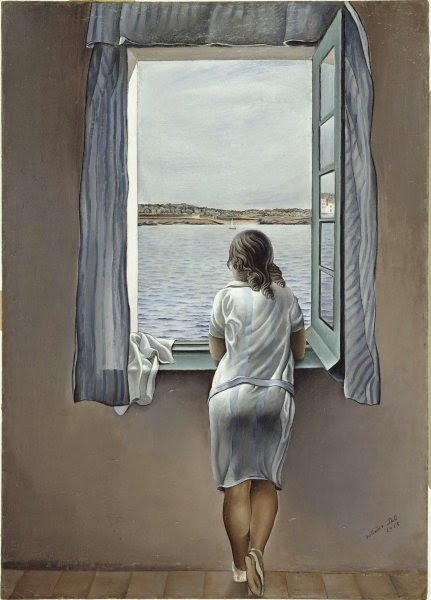En su significado más estricto, la democracia es un forma
organizativa del Estado que se caracteriza por el ejercicio de la voluntad
popular, en la que las decisiones
colectivas son adoptadas por los representantes legales elegidos por el pueblo,
mediante determinados mecanismos de participación, a quienes se les confieren
las facultades necesarias para ejercer esta función. Basada en el pensamiento
de Aristóteles en la antigua Grecia, y concebida, en su versión más simple,
como “gobierno del pueblo, por el pueblo y para el pueblo”, con el propósito de
oponerse a organizaciones o estados que pretenden conservar y/o gestionar el
poder político mediante principios autoritarios tales como el absolutismo, la
autocracia, el despotismo, la dictadura o el totalitarismo, entre otros,
manifiestamente contrarios con los derechos y libertades inherentes a la
condición humana, encuentra precisamente en las debilidades de nuestra especie,
fiel al aforismo popularizado por Thomas Hobbes “Homo homini lupus”, su
principal handicap. El egoísmo, que está en la base de gran parte del
comportamiento de los humanos, es una de los principales factores que
contribuye a alterar, e incluso a destruir, la convivencia y los principales
valores que la teoría política de la democracia representa: libertad, igualdad,
garantías individuales, pluralismo, tolerancia,
participación y opinión.
Cuando, como es el caso de una significativa parte de la casta política dirigente, se
utilizan subrepticiamente los mecanismos democráticos para encumbrarse en el
poder, utilizando los recursos públicos en su propio beneficio, practicando el nepotismo y la
corrupción en toda su extensión y fomentando la cultura del pelotazo económico,
realizando una nefasta gestión y esquilmando las arcas de las Administraciones Públicas
con total impunidad, defraudando la confianza de los sufridos ciudadanos,
especialmente la de aquellos que, con su sufragio, contribuyeron a su elección,
estamos, no solo en la trastienda de la democracia, sino en las propias cloacas
de la misma. En esta situación, los teóricos beneficios que se pudieran derivar
del sistema democrático quedan automáticamente
anulados y, la propia democracia, además de no aportar soluciones, se
transforma en el problema. Ya, en su tiempo, el célebre líder hindú, Mahatma
Gandhi, con su popular sabiduría, consideraba a la “política sin principios”
como el primero de los siete factores que entendía como más destructivos para el
ser humano.

El pleno ejercicio de la democracia puede llevar a los
pueblos al progreso y a la armonía social, pero se falsifica y prostituye cuando
se usa como bandera y no se practica, salvo para justificar los intereses
personales, o de grupo, con total desprecio al resto del colectivo. Un ejemplo
de lo anterior lo tenemos en las sucesivas huelgas de trabajadores que, por diversos
motivos y circunstancias, se han venido organizando en nuestro país, España, y
que, en estos momentos, están siendo especialmente duras en los sectores de la
minería y el transporte en Asturias. Sin entrar en los motivos de las mismas, o
lo que es lo mismo, en los fondos, que pueden ser entendibles y justificables,
lo que no es aceptable, por ser total y absolutamente rechazable, son las
formas. ¿Cómo podemos justificar que tratando de defender o reivindicar los derechos de unos se conculquen,
flagrantemente, los derechos de otros que, además, están exentos de culpa? ¿Cómo
se puede aceptar que se intimide, e incluso se agreda, a quienes en uso de su libertad
quieran ejercer su legítimo derecho al trabajo, o se impida la movilidad de
quienes, por uno u otro motivo, necesiten desplazarse, bloqueando carreteras y
vías ferroviarias? ¿Cómo se puede tolerar que piquetes de huelguistas,
eufemísticamente llamados informativos, ejerzan impunemente la violencia,
deteriorando vehículos, inmuebles, mobiliario urbano o todo lo que se encuentre
a su paso, al tiempo que critican enérgicamente la actuación de las fuerzas y
cuerpos de seguridad que tratan de impedir sus desmanes? ¿En nombre de qué
derecho? ¿En ejercicio de qué libertad? No creo que sea necesario recordar que
la frontera de nuestros derechos y libertades se encuentra donde empiezan los
derechos y libertades de los demás.
En mi caso particular, que ni tengo ni tuve ninguna ambición
política, ni estoy ni estuve relacionado con ningún partido ni formación,
interesándome por el tema lo justo por lo que como ciudadano me afecta,
habiendo nacido, crecido, estudiado, formado una familia y ejercido
profesionalmente la ingeniería durante bastantes años en el anterior régimen
franquista, en ningún momento he sentido la inseguridad ciudadana que en estos
momentos se vive, ni la incertidumbre económica y angustia personal que tantas personas sienten y sufren ante la
carencia y perspectivas futuras del empleo. Tampoco aprecio que los pilares
fundamentales del Estado, como son la educación, la sanidad y la justicia, amén
de los mejores recursos técnicos disponibles, que obviamente son producto de la
normal evolución tecnológica y no a la labor específica de sus gestores, hayan
mejorado. Otro tanto se puede decir de la familia, como cimiento básico de la
sociedad, en la que la pérdida de los valores fundamentales que la caracterizan
es manifiestamente preocupante y su
futuro incierto.
No es que tenga una personalidad negativa ni un pesimismo crónico,
simplemente ocurre que lo que actualmente veo no me gusta y lo que intuyo puede
venir, a corto y medio plazo, menos aún. Si no se produce un cambio radical, y
que este venga más temprano que tarde, muchos de los que vivimos lo que algunos
llaman “dictadura represiva”, es posible que hasta acabemos echándola de menos
C. Díaz Fdez.
Oviedo, 11 de Junio de 2012
